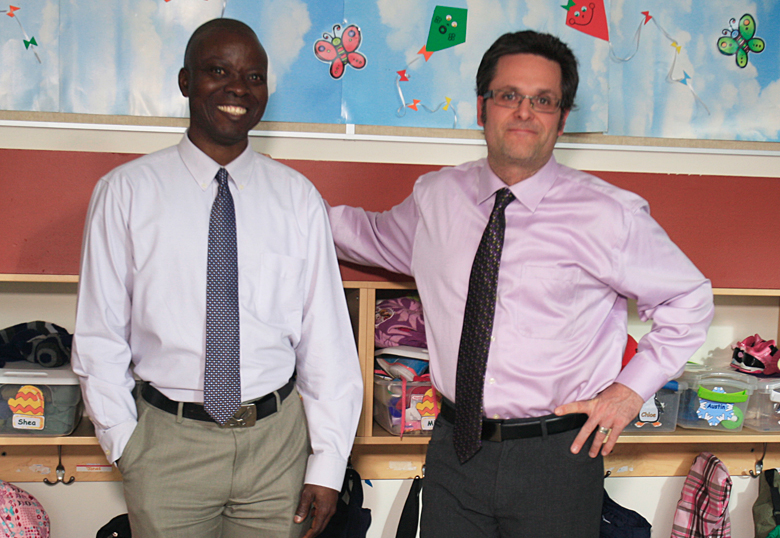Parents everywhere can relate to the feeling of relief when their young children are finally tucked into bed. The physical and mental demands of caring for, protecting and entertaining toddlers can be exhausting – and that’s for just a few hours after work.

The wearying fatigue of caring for your child is one thing – now extrapolate that to 10 or more children, over the course of a five-day workweek and under the demands of their individual parents. Such is the challenge facing daycare workers who undoubtedly love their jobs, but face demands that consistently undermine their own health and wellness.
“This is an industry that cries out, and rightly so, about retention problems, burnout of their workers and problems with quality delivery because of worker fatigue,” says University of Lethbridge kinesiology professor Dr. Jon Doan (PhD '07) “So they need some help.”
Doan and research partner Dr. Olu Awosoga of the Faculty of Health Sciences have been awarded one of two annual Parkland Institute grants to study the situation and hopefully provide help through the delivery of an evidence-based education and work-related exercise program. They have also received funding from the Government of Alberta, Occupational Health and Safety Futures Research Funding Program (2014 competition), to develop an ergonomic intervention for childcare workers.
The idea spawned from Awosoga’s personal connection to the daycare industry. His wife Esther is the director of the University of Lethbridge Daycare and he sees, first-hand, the staffing issues she faces when employee health and wellness is compromised.
“I understand what she goes through. Apart from her administrative work, she would have to be in class if workers call in sick. I would ask her to explain her work and what the problem was,” says Awosoga. “She explained to me how everybody is interested in the quality of work they give to the kids but nobody is interested in the workers themselves. I thought it’d be a great topic to research.”
Awosoga’s background is in analyzing data and applied statistics. He sought out Doan because of his expertise in factors such as ergonomics and physical movement. They also chose to focus their studies on rural daycare providers because of both their limited supply in some areas, and their limited access to wellness opportunities that may be available to workers in urban centres.
“Just looking at it in practical terms, if daycares close because their workers are off on disability leave, then it impacts the parents and it impacts the quality of education for the kids – it’s a real trickle-down effect,” says Doan. “In a rural setting, this is even more acute. You may be looking at single operator day homes and only a small selection of them. If one or more closes for an extended period of time, there are a lot of people who are disadvantaged as a result.”
With input from a project advisory board that included daycare workers and administrators, Doan and Awosoga set out to first evaluate the current health and wellness attitudes of rural daycare workers.
“Olu has really great skills when it comes to big data set analysis,” says Doan. “In the pilot study, we delivered questionnaires to a large number of workers. Olu has the statistical tools and understanding to sift through the data and to pull these answers together and say here are the themes and commonalities that are emerging from this data.”
From there, the group will work to put together an education and exercise package tailored to meet the unique workplace demands of daycare workers.
“As a new investigator, learning from an experienced investigator such as Jon, I bring in how to apply statistics and the quantitative approach,” says Awosoga. “Fortunately for me I am learning a lot about the qualitative aspect as well because I have the opportunity to work with many qualitative researchers.”
The project could have significant public policy implications. Through their work, Doan and Awosoga have discovered a dearth of literature and policy related to the health and safety of daycare workers both in Alberta and across the country.
“From a policy perspective, this is an opportunity to establish something that can be applicable to all those small workplaces that can’t feasibly have their own occupational health and safety awareness programs,” says Doan. “People recognize the importance of this but just don’t know how to support it and we hope to be able to provide that.”
***
Learn more about community-connect research like this at the 2015 Community University Research Exchange.
